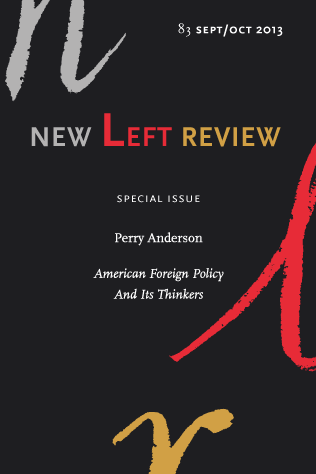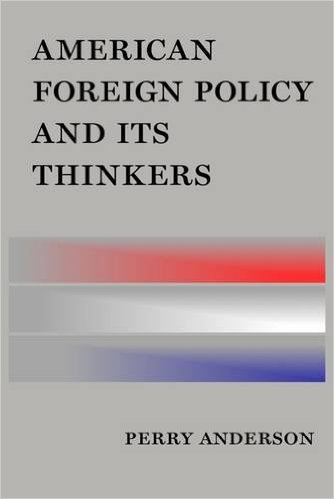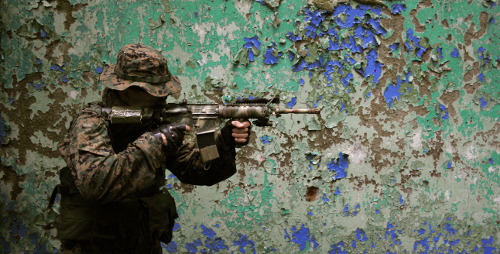Rod Beckstrom is a friend I first met at the TED conference in 2005, just after I spoke. He came up to me in the hallways outside and we struck up a conversation. It led to me giving him my speaking agent, Jennifer Gates, for he and Ori Branfman to get their Starfish and Spider book published. Rod later went on to be the CIO of the Department of Homeland Security and then president of ICANN.
Thomas Barnett on Wikistrat
Thomas Barnett, the Chief Analyst of Wikistrat shares this story about how his company applies starfish principles to strategic thinking and planning. Tom answered the following questions to explain what they do at Wikistrat:
Q: As Chief Analyst, can you provide a brief overview for our Starfish Report readers of what Wikistrat is, and how it works?
A: Wikistrat is the world’s first crowd-sourced consultancy. We leverage a global community of several hundred strategic thinkers to tackle simulations of likely international events and unfolding global trends, the war-gaming of future conflict or crisis scenarios, and strategic planning exercises – all for private- and public-sector clients. To make such an offering possible, Wikistrat has put in the time and effort to not only create and nurture our global community that welcomes talent from all regions and a diverse range of subject domains, we’ve built – and continue to expand with each simulation – an online model of globalization itself in a wiki-based, scenario-driven format. So we’re basically three things at once:
1) Facebook for strategists from around the world who are looking for a place to improve their skills, run with others of their own kind in a 21st-century guild environment, and come together for paying consulting engagements;
2) Wikipedia-like global intelligence exchange (our globalization model, or GLOMOD); and
3) Massively multiplayer online consultancy (MMOC) that offers clients a crowdsourcing alternative to the usual “butts-in-seats” consulting firms that can’t possibly match our price points when it comes to massed brainpower because our overhead costs are so minimal.
We’re convinced that this is the future of consulting in the globalization era because our approach allows clients a far more interactive engagement (e.g., they can participate in our simulations on a real-time basis), combined with a wisdom-of-the-crowd dynamic that effectively addresses today’s complexity and constantly morphing international landscape. Our simulations can run for hours, days or weeks – even months. They can be mounted at very short notice and generate actionable insights for clients from the minute we turn them on.
Q: To what degree does Wikistrat embrace a decentralized “starfish” style of leadership? Is there a centralized leadership system that oversees and directs Wikistrat’s network of analysts?
A: Wikistrat is starfish-like on a number of levels.
First, we assemble temporary teams for client engagements, just like a production company that is formed to make a movie and is then disbanded. So there’s no set pattern of who gets pulled into any one engagement.
Once we establish the core group of senior experts needed for the task, we send out invitations across the community to fill out the remainder of the participant pool, aiming for the highest diversity possible by subject domain, region, and experience level, and then we see who takes up the offer and runs with that opportunity.
I can’t tell you what a typical Wikistrat team looks like, because we don’t know until it comes together in response to the client’s request. Our job is simply to keep the global “bench” deep and wide and accessible in a real-time fashion, understanding – of course – that we vet everybody before letting him or her into the community. We aim for a very particular “crowd.”
Second, our guild-like community self-organizes itself to an unusual degree. We’ve set up subject-matter and regional desks and assign analysts to those based on the interests they express in their applications and intake interviews. But once inside the community, they’re pretty much free to pick and choose the bulk of their activities, which leads to a lot of pleasant surprises as people develop talents and display skills you wouldn’t expect, based on reading their resumes.
Over time, that’ll lead to new desks being formed in response to the self-initiated clustering of minds. We’ve also “gamified” the community for the younger, less-experienced analysts, which means we offer them a variety of pathways to earn points that elevate their network standing and consulting opportunities over time, while “sharpening the blade” – as it were.
So far, these younger analysts have gobbled up those activities and constantly push us to generate more (like the world’s first crowd-sourced strategy book), which is an awesome responsibility for Wikistrat, because we’re filling a gap in their professional training and thus empowering the next generation of grand strategists that this world desperately needs.
Third, the GLOMOD itself is self-organizing. We like to say at Wikistrat that, “analysts don’t compete, they collaborate by making scenarios compete.” When analysts work on client engagements, or in one of our internal training simulations, or even just when they working the GLOMOD on their own – for their professional gratification, if they disagree with or can’t bear the analysis on some scenario page, they’re free to “take their fight outside,” as I like to say, by creating an alternative scenario page on the wiki.
That means the GLOMOD grows from the inside out, but in directions no one can predict. Ideas cluster on their own, creating new centers of analytic gravity within the GLOMOD. My job as de facto chief architect is to make sure no branch grows so long that it’s unsustainable or unduly isolated in its reasoning, meaning we want other portions of the GLOMOD to reach out and establish analytic linkages – in both a figurative and literal (i.e., HTML) sense. Thus the GLOMOD is really a collective-but-distributed “brain” that grows according to the dictates of the community working in response to client requests.
Fourth, we have no set sales staff. Our analysts themselves are our primary sales force. Wherever they go and whatever they encounter in their various other professional endeavors, they’re empowered to market Wikistrat’s services – that crowd-sourced alternative they can’t deliver themselves. That means they can propose new offerings and solicit new clients on their own, which, once we accommodate them, lead to Wikistrat’s growth as a consultancy and company.
The same is true on recruiting, as our analysts are our primary recruiters.
With offices in New York, Tel Aviv and Sidney, Wikistrat is effectively headquartered in the “cloud.” To date, our central staff remains quite small – as in, single digits. We’re going to try and keep it as small as possible going forward, but we’re facing a significant challenge in that regard, due to the growing demand for our services and the sheer fact that analysts are signing themselves into the community from around the world every day. But these are good problems.
Q: What happens during live multi-player simulations?
Typically analysts will spend about half of a simulation working out – meaning populating with rich detail – alternate scenario pathways, exploring them across what we call a Scenario Dynamics Grid, or a generic multi-stage breakdown of a scenario’s lifespan, however long that may be (i.e., anywhere from hours to decades, depending on the client’s time focus).
Then the analysts will vote on the most plausible and/or revealing – to the client, that is – master narratives, which are the sequencing of individual scenarios at various stages in however many combinations make the most sense. Once we have those in hand, participants will often analyze how these various master narratives impact the interests of the most relevant real-world actors – in effect assuming their personas. At that point, our crowd will start brainstorming and then competing various policy options for those same actors.
That’s a fairly generic client engagement that involves simulating some possible future event. But we can vary the structure of simulations by any number of variables, and clients can always follow up with requests for additional modules (e.g., inserting a “shock” into an unfolding scenario to test some policy option).
In this regard, one of our favorite schemes is having multiple groups of analysts play the same real-world actor – say a nation-state government (in truth, analysts often spontaneously organize themselves along these lines in simulations whether we tell them to or not). Another is to have actual citizens (analysts) play their own countries. Too many American exercises simply have Americans playing everybody, when what you really want is Chinese playing Chinese, Indians playing Indians, etc. That’s where our global community comes into play. That’s how you obtain truly new sets of eyes.
And that’s really the underlying principle we follow in all design – “collaborative competition” of descriptions, concepts, options, etc. So we like to compare the work dynamic to additive manufacturing – aka, 3-D printing. We’re not aiming for the destructive, subtractive dynamics of the blogosphere, where everyone spends way too much time tearing down each other’s ideas. We want our analysis to be built, layer by layer, with as many hands shaping the intellectual product as possible but with everyone getting credit for every single keystroke – all of which is instantly archived for the client’s access. Wikistrat is completely transparent in that way, which we think is hugely important in terms of making the client smarter – not just the analysts working inside traditional consulting’s “black box.”
One final thing to note from the analysts’ perspective: the “crowd” we source on any simulation works – on an individual basis – according to their own schedules. Our simulations have to go 24-7 because we’re global from day one. So we don’t ask our crowd to assemble in one room somewhere on the planet, thus allowing us to tap their wisdom in whatever natural context they currently reside – wherever they reside.
That means we get analysts’ best work because they offer their time at their greatest convenience. That’s why we prefer longer-run simulations for maximum flexibility, but if the client wants things faster, we accommodate that desire simply by increasing the size of the “crowd” to ensure a critical mass is achieved in a tighter time space.
Q: The Wikistrat site states that, “Wikistrat uses its patent-pending, digitalized, war-gaming methodology for engaging clients…” Can you explain how war-gaming methodology is used to provide geopolitical strategic analysis?
A: Besides the description I’ve already offered above, the key thing that differentiates Wikistrat is our simulations/war-games/etc. aren’t pre-scripted affairs that force analysts into either “fighting the scenario” (i.e., disputing its plausibility or fidelity to real life) or chaffing within its artificial confines. Because our whole methodology revolves around the wiki, our motto is, “Don’t fight the scenario, fracture it.”
Here’s what I mean: Wikipedia has one entry for me, and it’s so conflicted that the organization labels it “not up to standards.” The simple truth is, my thinking is controversial enough in several realms so that there’s no one set worldwide opinion as to its validity – go figure! In Wikipedia, that leads to a sub-optimal or less-informing outcome.
But in a Wikistrat simulation, we don’t try to contain analysts and their ideas within a single scenario. Again, if there’s a fight, we instruct the aggressor to “take it out” . . . on a new wiki page that thereupon competes with the “low fidelity” page that he or she cannot abide. So long as analysts are willing to put their money where their mouths are, and stand by the alternative scenarios they generate by providing accompanying policy options, then all we’ve done with that conflict is exploit it to the client’s benefit.
We can do all this because our exercises never commit themselves to paper or the responsibility – and cost – of massing several dozen experts in some resort hotel for X days, all of which creates massive organizational pressures on the game convener to go as scripted as possible so as to avoid wasting already sunken costs. Since we’re in the “cloud” from start to finish, the costs involved with accommodating out-of-the-box thinking is virtually zero. To me, that’s “starfish” because circumstances and creativity dictate form and function – not the other way around.
As for the “patent-pending” part, that’s our using the wiki in “competitive collaboration.” Wikipedia doesn’t compete its entries but Wikistrat competes everything. Throughout our war-games, analysts will vote on darn near everything. Clients can too. So our sims are intellectually invasive (i.e., “engaging”), but tremendously cost- effective due to digitalization.
Great example: L ast June we held an International Grand Strategy Competition with three-dozen teams of grad students from top universities from all over the world. We gamified it with a prize and had various teams assume the personas of various great powers. But to make it truly competitive and collaborative at the same time, in most instances we were able to get three different schools playing the same country. What that meant was that the three teams playing Pakistan competed fiercely with each other to be the best Pakistan, but they also fed off each other’s creativity. So the harder they competed, the more they collaborated. And you know what? This collection of teams truly turned my head around on Pakistan, taking me places strategically that I hadn’t considered.
Frankly, that’s why we use next-generation strategists in every sim we run. They simply don’t know what questions they’re not supposed to ask, and that makes them dangerously creative in everything they do – again, to the client’s benefit. If you fear “black swans,” nobody hunts them down better than those fresh minds that haven’t already been “made up.” Put some “young Turks” on a wiki burdened by too much conventional wisdom, and they’re like bulls in a china shop.
Q: As the author of three books based on your background as an analyst for the US military, you advocate for a new direction the military can take towards the globalization of peace. Do you think this can be accomplished within the military’s current top-down hierarchical leadership style? Do you think the military could/should engage civilian peace-oriented networks to achieve the goal of global peace?
My System Administrator “force,” or one focused on everything but big wars, was always based on the notion that it’s essentially a military-civilian interface function that tilts decidedly to the latter over the course of its operations. In effect, my SysAdmin force is a way for the military to transition – as quickly and as comprehensively as possible – the low-end policing, nation-building, frontier integrating, etc., to non-military actors (NGOs, PVOs, international bodies, private sector enterprises, local governmental entities, and so on).
It was designed to be “starfish” from the get-go; I just didn’t have that particular vernacular in my tool-kit at the time. Now, of course, thanks to Rod and Ori’s book, plus those various insurgencies since encountered, it all seems so obvious.
My SysAdmin concept is definitely about the multiplication or franchising of authority centers within on-the-ground operations (post-conflict, post-war, counter-insurgency) that the military historically prefers to run in a highly hierarchical manner. But as we know, that can infantilize local capacity – destroy it, actually.
So, absolutely, the military has to embrace a certain “starfish” mentality for the hand-off dynamics to unfold successfully. That doesn’t mean I want the entire US military to go down that route, but the skill set must be developed among those particular forces that get stuck with these ops time and again, and that’s why I originally advocated a certain splitting of the force, between warriors who focus on big wars and those who manage the small conflicts, so the latter would develop and – more important – never discard those skills, which is what we did after Vietnam and are threatening to do again with this new obsession on China and the AirSea Battle Concept.
We’re living through an age of globalization’s globalization – if you will. For decades, the global economy was just the West, but now it’s north, south, east and west – truly global, meaning frontiers are being integrating all over the planet simultaneously. That’s a lot of political-military churn to go along with all that socio-economic change.
So if you want to continue exploiting globalization’s ultimate pacifying effect, you need to aggressively process these many frontiers, settling them down. That’s a huge international project where the US military can only succeed if it enlists as many new allies as possible, and that means going as “starfish” as possible across its relevant organizational edge. To me, that’s the Army, Marines and Special Forces – the core elements of my SysAdmin concept.
To learn more visit wikistrat.com.
 Sunday, August 28, 2016 at 11:33PM
Sunday, August 28, 2016 at 11:33PM  Thomas Meaney review's Anderson's book (American Foreign Policy and Its Thinkers by Perry Anderson
Thomas Meaney review's Anderson's book (American Foreign Policy and Its Thinkers by Perry Anderson Great Powers | in
Great Powers | in  Citation Post,
Citation Post,  Tom in the media |
Tom in the media |  Email Article |
Email Article |  Permalink |
Permalink |  Print Article
Print Article 

























